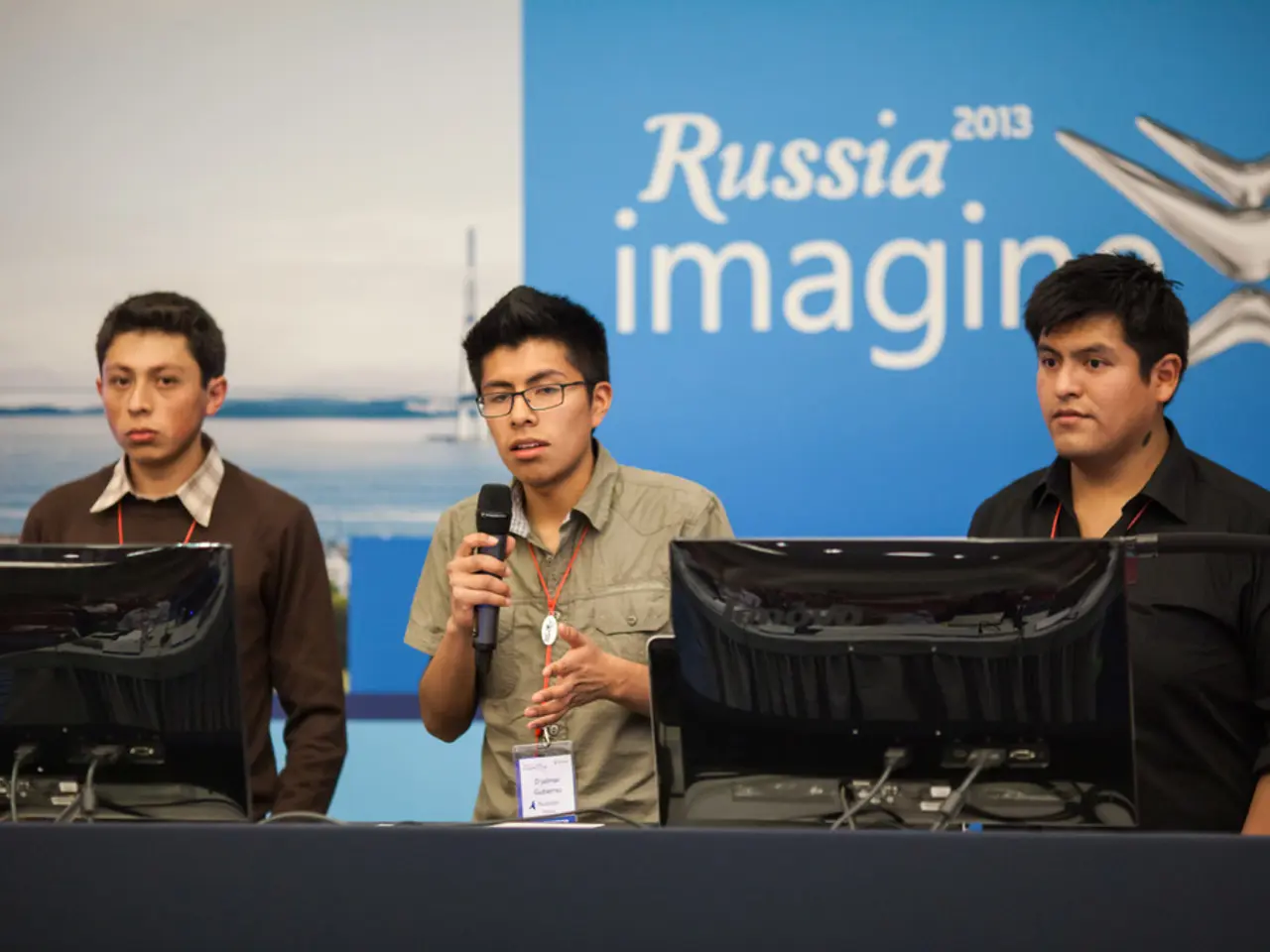Court maintains injunction against Trump administration, preventing widespread immigration raids
In a significant ruling, the Ninth US Circuit Court of Appeals has upheld a lower court's order blocking the Trump administration from conducting indiscriminate immigration stops and arrests in Southern California. The decision comes after a lawsuit was filed by immigrant advocacy groups, accusing the administration of systematically targeting brown-skinned people in the region.
The court's ruling emphasises that reasonable suspicion for immigration stops and arrests cannot be based solely on the four factors of apparent race or ethnicity, speaking a language or accent, presence at a particular location, or occupation. These factors, alone or even combined, do not constitute reasonable suspicion.
Judge Maame E. Frimpong, in her order, stated that there was a "mountain of evidence" that federal immigration enforcement tactics were violating the Constitution. The court implies that other specific factors must be considered to justify reasonable suspicion, although the exact acceptable factors are not explicitly itemized.
The hearing, which took place on Monday afternoon, saw the judges sharply questioning the government over their arguments. The American Civil Liberties Union attorney argued that the government's actions could lead to a world where a US citizen could be grabbed, slammed against a fence, and have his phone and ID taken just because he was working in a Latino neighbourhood.
Federal agents have been rounding up immigrants without legal status from various locations such as Home Depots, car washes, bus stops, and farms. However, the court's restrictions aim to prevent indiscriminate stops or detentions based on generalized profiling characteristics and instead require a more concrete, fact-based suspicion.
Attorney Jacob Roth, representing the government, argued that the court should not ban the government from using the four factors mentioned above. He stated that it's legally appropriate to use these factors for reasonable suspicion. However, Roth was met with skepticism from the bench, with Judge Jennifer Sung stating that those factors alone only form a "broad profile" and don't satisfy the reasonable suspicion standard to stop someone.
The government argued that immigrant advocates did not present enough evidence to prove an official policy of stopping people without reasonable suspicion. In response, Roth stated that it's a very serious thing to say that multiple federal government agencies have a policy of violating the Constitution. Sung, in turn, asked, "What is the harm to being told not to do something that you claim you're already not doing?"
Among the plaintiffs is Los Angeles resident Brian Gavidia, who was shown in a video being seized by federal agents. The federal government asked the court to overturn a temporary restraining order issued on July 12. The court's decision to uphold the order means that the government must now find other means to enforce immigration laws in the region, relying on individualized, articulable facts about suspected unlawful activity.
- The court's decision on the Trump administration's immigration policies stresses that using factors like race, ethnicity, language, location, or occupation as the sole basis for immigration stops and arrests is not legally acceptable, as it violates the Constitution.
- The court's restraining order, upheld in the case against the Trump administration, necessitates that the government enforces immigration laws in Southern California based on individualized, fact-based suspicion rather than relying on generalized profiling characteristics.







